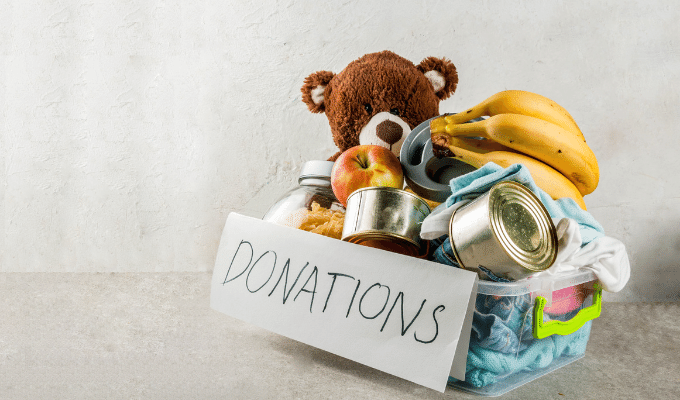Wise Giving Wednesday: Spring Cleaning Donation Options

As we enter the spring months and perhaps develop the courage to clean our closets and consider making in-kind donations to charities of the things we don’t use or no longer fit, consider these tips to help avoid being disappointed in how these contributions are used.
Keep, donate or trash? Don’t assume that charities will accept all second-hand items. Usually, they are looking for items in “good” condition. Ripped sweatshirts or torn jeans will likely be rejected. If uncertain about what the charity will accept, contact them before making the gift.
Drop-off collection bins. Most metropolitan areas have a variety of collection bins scattered throughout the community that welcome donated clothing. Don’t assume all of them are connected to charity. Be wary of names you don’t know or are similar to ones you do. In some cases, a bin may belong to a for-profit company. Take the time to check out the charity name that appears on the bin with Give.org or BBB.org to verify if they meet the 20 BBB Standards for Charity Accountability.
How will donated clothing be used? Don’t assume all donated used goods are distributed to the needy. Sometimes they end up in a charity thrift store to generate revenue for the organization. Or some may sell items to a third party to be converted into rag bond paper. Visit the charities website to find out how they intend to use donated clothing.
Collection trucks. Another possibility is that a charity may contact you by phone or mail and ask that you set out goods for collection on a specified date. If so, contact the charity to find out how they will benefit. In some instances, a third-party picks up the donated goods and the identified charity only gets a flat fee for each pick-up no matter what is included.
Deductibility. Some donors mistakenly believe the charity will assign values to the goods you donate. Actually, it is your responsibility to ensure that you are properly valuing these gifts. One potential reference is to visit a charity thrift store to identify the typical prices of similar items. For any non-cash contributions totaling over $500, you will need to complete and attach IRS Form 8283 to your next tax return. For more deductibility information, consult an accountant and/or go to: IRS Publication 526: Charitable Contributions.
Video of the Week
As part of our Building Trust Video Series, we are pleased to revisit a 2016 video featuring Lieutenant Colonel Ron Busroe, National Communications and Development Secretary of The Salvation Army’s National Headquarters in the United States (a BBB Accredited Charity). The Salvation Army works through a network of 7,580 facilities in communities throughout the United States. The organization services include providing shelter for the homeless, food for the hungry, daycare services for the elderly, assistance for the disabled, job training for displaced individuals, Bible classes for people in prison, relief for disaster victims, after-school tutoring, youth camps, and recreation activities for children.
Recent Reports
We are always working with charities to publish or update reports for donors. Visit Give.org or local BBBs to check out any charity before giving. Our recently evaluated charities include:
Finally, remember to let us know by going to www.give.org/charity-inquiry if you are interested in seeing a report on a charity not on the list and we will do our best to produce one.
H. Art Taylor, President & CEO
BBB Wise Giving Alliance


